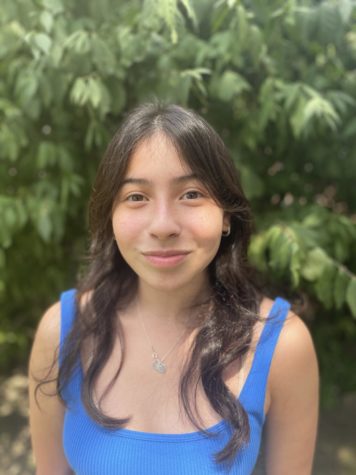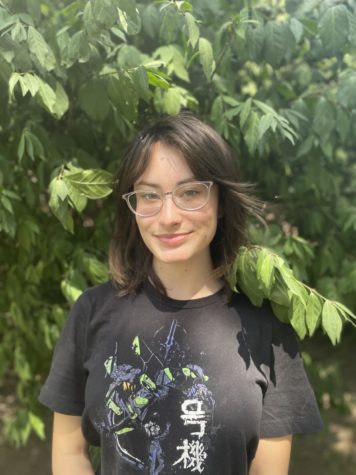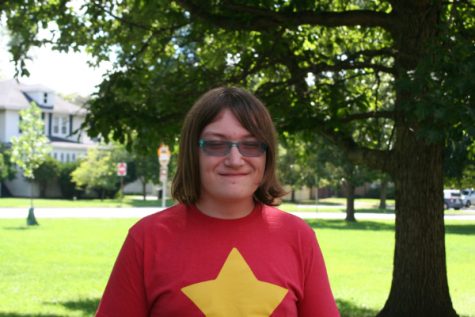RB’s student election judges take on the polls
March 24, 2023
In view of state-wide elections, students at Riverside Brookfield High School will aid at the polling booths. On April 4, a consolidated election will occur, and RB juniors and seniors will have the opportunity to work as student election judges. RB scholars will not only oversee voters and distribute ballots but will also aid and support local government.
For over ten years, RB social sciences teacher John Fields has offered juniors and seniors the opportunity to become student election judges.
“I’ve been doing it for about ten years now. There was a teacher here prior who did it, and when she retired I took that over for her,” Fields said. “I had a mentor. Her name was Jan Goldberg, who was active in this, and she sort of mentored me and got me involved as well.”
Fields has taught Government in the past, which incited an interest in politics. Working in this capacity, he has aimed to aid students in becoming involved in local government and diplomacy.
“I just like getting young people involved in the political process…so, just having young people see how the process works; I just enjoy that,” Fields said. “I helped register students to vote, and so this was a natural progression from there.”
Juniors or seniors who are at least 16 and have at least a 3.0 GPA on a 4.0 scale have the opportunity to become student election judges.
“I’m interested in politics and local government, and I want to be a part of the community in a way that felt tangible,” said RB senior Devon Encher. “My dad is a lawyer, so it’s always been pretty important to me to be well-versed in local government as well as just being an informed citizen, and being an election judge…you feel at the end of the day like you have helped your community. So, just really getting connected is a great payoff, so that’s what drew me in.”
Although some juniors and seniors have yet to reach the age to vote, they can still be involved in the local government by becoming election judges.
“So, I can’t vote yet. I’m 17. But, with a pretty important election coming up, I wanted to take part in any way that I could, and I found out about being an election judge two months before the election, and it was the perfect way for me to take part in the election because I can’t yet actually vote,” said RB senior Olivia Buoscio. “I’ve always been interested in government and politics, and I just thought it was a good way to enforce the importance of voting.”
Before taking on the polls, individuals wanting to serve as election judges are required to attend in-person and online training sessions that encompass the logistics of an election day.
“It [the training] was very long. We had I think it was one or two online training courses that we had to fill out, and they each took an hour or two because there was just so much to learn, there was stuff about setting up and cleaning up, and there were stuff about how to work the machines and a lot of precautionary of what would happen if, or what to do if this happens. So, the training was all very informative obviously, but it was very long and you really had to be paying attention,” Buoscio said.
At training sessions, students will learn the ropes of election judging. From handwritten to digital ballots, students will learn about the logistics of the day and how to use the machinery involved on election day.
“The tools we use are called E-Poll Books. They’ve got a practice one, so you learn to set that up. You learn how to use it all. They’ve got the machine we use to submit ballots. It’s called a VSC, [and] they have one of those as well, so you get to work with all of the specific tools you’re using on election day, and the people who are teaching you. You’re in small groups of four or five with one educator,” Encher said.
Election judges will have the responsibility of setting up the machinery and polling place prior to the election.
“You’ll either set up in the evening before or in the morning, and that involves getting physical poll booths for write-in ballots set up and also making sure that all your E-Poll Books are connected so that the record and the statement of ballots can be properly transmitted to the county clerk, and then throughout the day, you will shift…So I will either take their name or their voter ID, look them up, and they’ll sign their oath, and I will hand them their ballot, and they’ll be on their merry way, and you do that for ten hours straight,” Encher said.
From 5 a.m. to 7 p.m., election judges will take on different roles and responsibilities. Election judges will also be paid around 250 dollars, depending on their specialty.
“There were a few responsibilities. We were sending people in, and then getting them their ballots whether they did digital or handwritten, and so what I was doing for most of the day is getting the handwritten ballots. So, I would hand them their ballots, tell them what to do, and then I would show them where to put them when they were finished with it. So, I was just guiding people who were using handwritten ballots,” Buoscio said.
Although the day of the election is long, the experience is truly rewarding.
“The day is long, and it’s difficult, it’s pretty tiring, but you come away from it feeling really proud of yourself and the work that you’ve done, and you meet a lot of great people. There was, in my first election in June I met a woman her name was Sholanda. She’s been working for Cook County for almost 30 years, and she gave me advice, helped me out, she showed me the ropes, so now in my second election, I was helping out new election judges too. So, I would absolutely say go for it. It’s such a great community-building tool, and it’s an amazing experience overall,” Encher said.




